Vegan cheese is the perfect product for the ethical foodie. It’s the most versatile type of vegan cheese and can create various dishes.
So, how long does vegan cheese last? If you are a vegan who loves cheese, we will teach you how long vegan cheese lasts to keep your supply topped up at all times. If you’re vegan foods and cheese-free, you might wonder if vegan cheese lasts long.
The answer to this question is ambiguous, as different vegan cheeses may last differently. However, vegan cheese generally lasts 3-5 days when stored in a fridge. Note that cheese made with non-vegan ingredients (like casein) will not last as long as vegan cheese. So, if you’re looking to stock up on vegan cheese, store it properly.
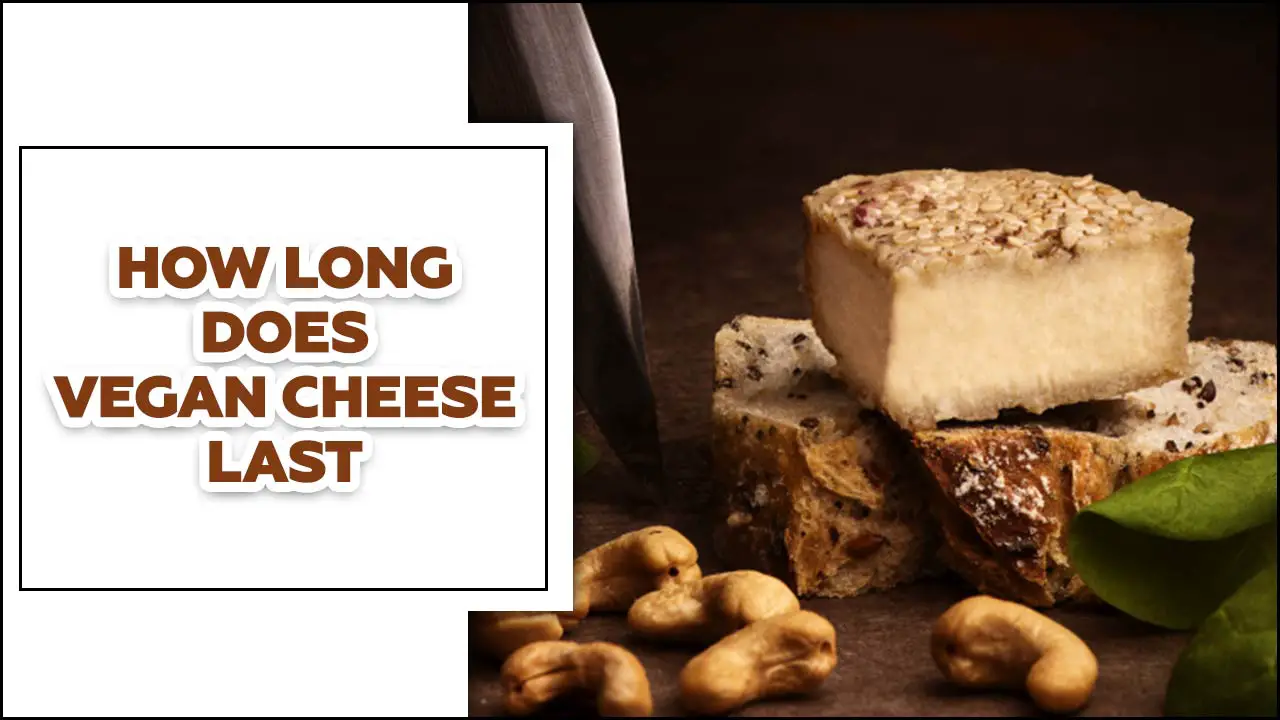
Contents
- 1 How Long Does Vegan Cheese Last – Explained!
- 1.1 Whey
- 1.2 Milk
- 1.3 Salt
- 1.4 Agar
- 1.5 Benefits Of Eating Vegan Cheese
- 1.6 List Of Cheeses For Making Vegan Cheeses And Their Taste
- 1.7 Is It Right Or Wrong To Freeze Vegan Cheese?
- 1.8 How To Freeze Vegan Cheese
- 1.9 How To Tell If Vegan Cheese Is Bad
- 1.10 Can You Eat Vegan Cheese After 7 Days?
- 1.11 Frequently Asked Questions
- 1.12 How Long Can Vegan Cheese Stay In The Fridge?
- 1.13 How Long Does Vegan Blue Cheese Last?
- 1.14 What Is Vegan Cheese Made With?
- 1.15 Is It Okay To Eat Expired Vegan Cheese?
- 1.16 Why Is Butter Not Vegan?
What Is Vegan Cheese Made Of?
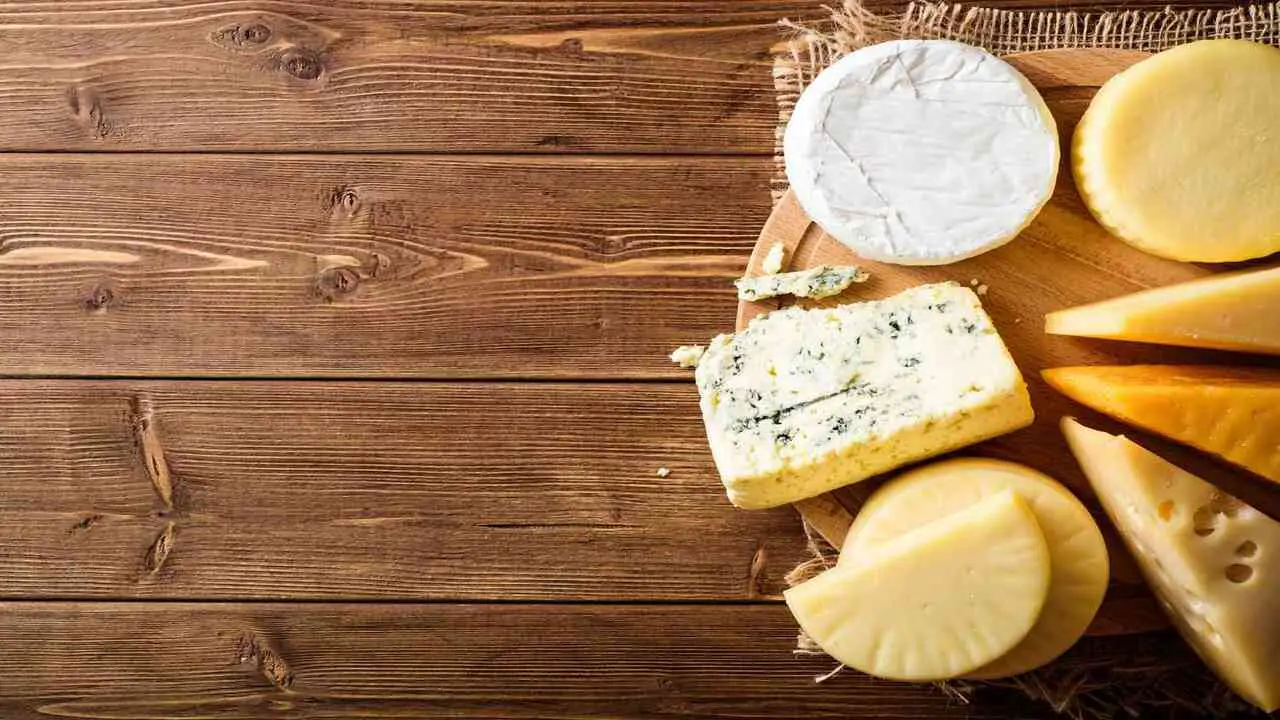
Vegan cheese is a popular alternative for those who follow a plant-based diet or are lactose intolerant. But what exactly is vegan cheese made of? While the ingredients can vary depending on the brand and type of cheese. Most people typically make vegan cheeses from plant-based milk, such as almond, soy, or cashew.
Other common ingredients include coconut oil, nutritional yeast, and tapioca starch. As for how long vegan cheese lasts, it depends on the type and storage conditions. Although these vegan cheeses vary depending on where you live, most use milk and whey to commercialize.
How Long Does Vegan Cheese Last – Explained!
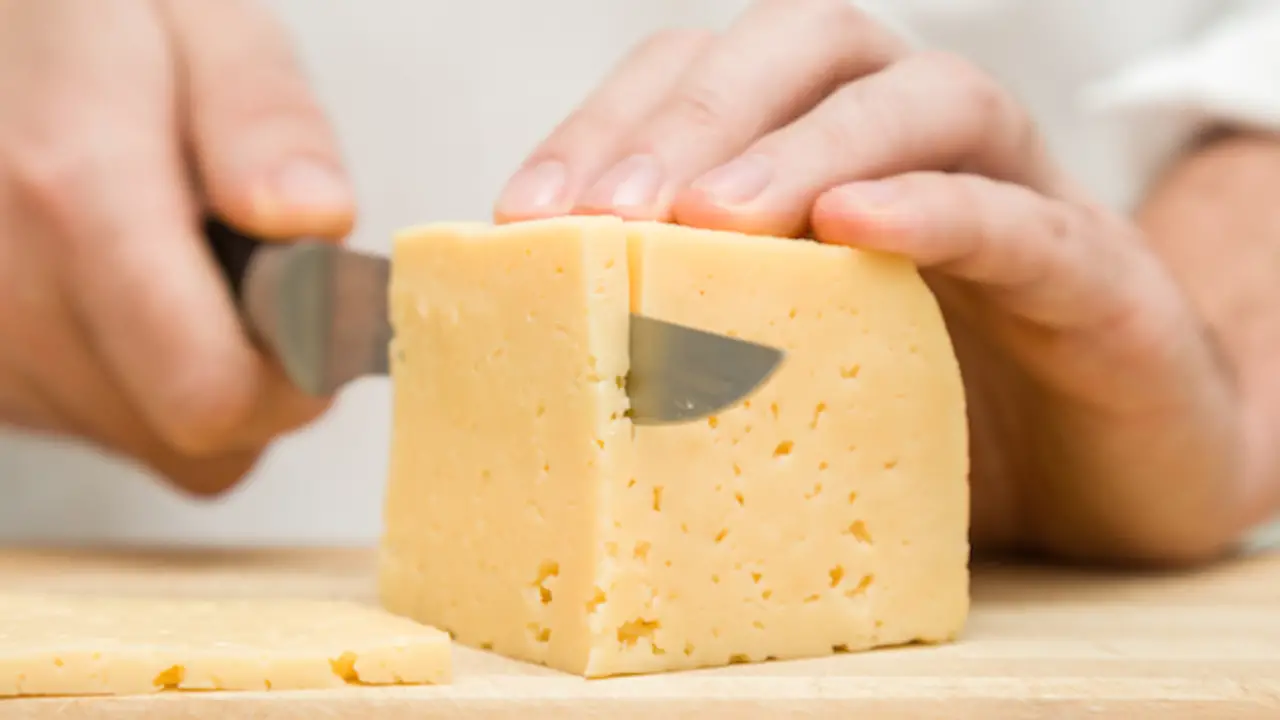
It is very important to know how long does vegan cheese last. If you’re a vegan cheese lover, the shelf life can vary depending on the type. Hard or aged vegan cheeses, like cheddar or parmesan, can last up to several months in the fridge. Soft cheeses vegan cheeses, like Brie or cream cheese, typically last around 1-2 weeks.
Always check the expiration date and look for signs of spoilage before consuming. Storing in an airtight container helps extend shelf life and prevent drying out or mold. Proper storage and handling allow you to enjoy your favorite vegan cheeses longer.
Whey
Whey is a byproduct of dairy production when cheese or other products like butter are produced. Sometimes, it’s used as an ingredient in foods without having to go through much processing since a lot can be directly taken out using safe cleaning agents (as opposed to cow -milk, which must be processed in a way that doesn’t separate the cream and liquid, hence milking it).
This can happen if the whey is directly put into an acid, such as lime or vinegar after it’s separated. The yeast used to make cheeses also uses this cheese part during production.
The spread of vegan cheese options has been increasing in recent years. Actual cheese is a popular dairy product known for its rich and creamy taste.
Milk

Old-fashioned “cheese-making at home” often includes using buttermilk – which is set through a process where whey (usually considered safe because it’s not as acidic) can also be used.
If you don’t want to use buttermilk, just pour milk, water, and some lemon juice into your cheese trays with herbs and let the mixture sit there overnight or until the next morning So that they will combine while making rind-like layers on top of each other.
Then strain the liquid to remove whey and cream before you nurse it into a set. Ice packs are essential for keeping perishable items fresh during transportation.
Salt
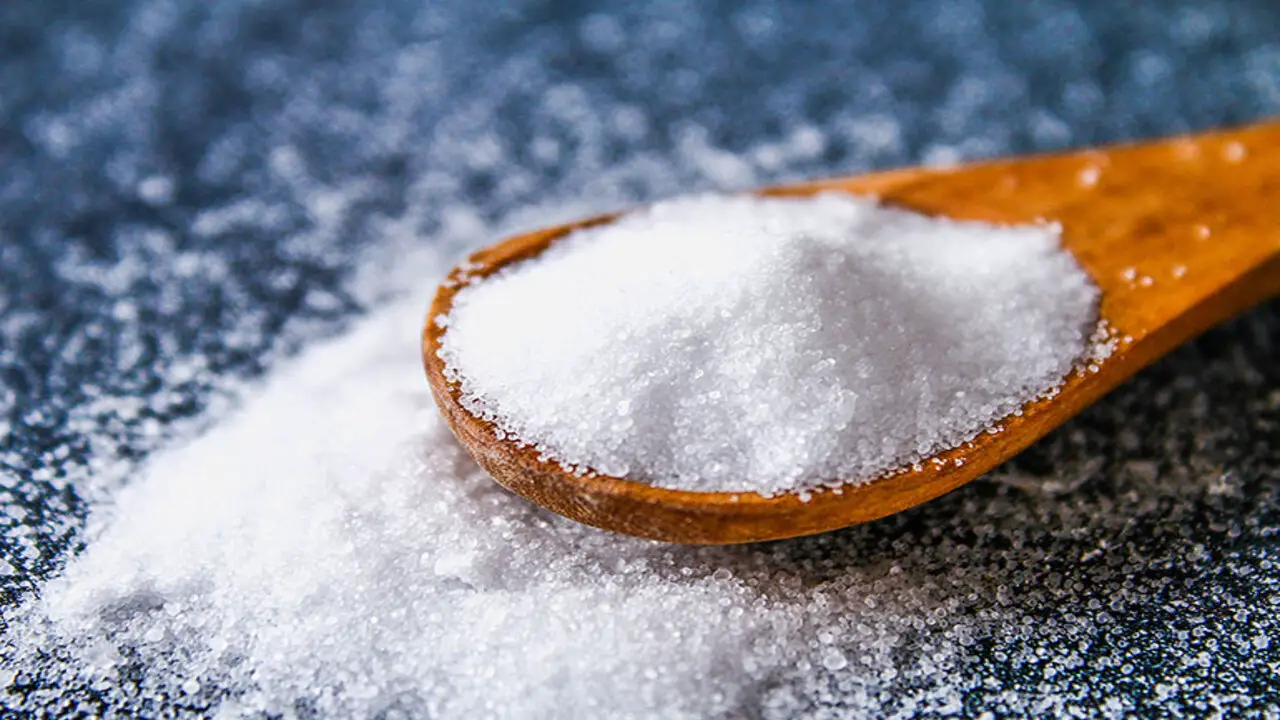
The shelf life of vegan cheese depends on several factors, including the amount of salt used in its production. Salt acts as a natural preservative, extending the freshness of dairy-free alternatives.
European-style vegan cheeses like mozzarella, ricotta, and cottage cheese typically use salt as an acidifier, emulsifier, or preservative. However, American farmers have developed versions with lower salt content, preserving the natural taste and juiciness of the animal-free cheese. The spread of vegan cheese options has been increasing in recent years.
Agar

If you’re a vegan cheese lover, you may wonder how long your favorite dairy-free cheese lasts. The answer depends on the type of vegan cheese and the storage conditions. Vegan cheeses made with agar, a plant-based ingredient that mimics the texture of gelatin, can last for several weeks in the refrigerator if stored properly in an airtight container.
However, it’s important to note that agar-based vegan cheeses may dry out over time and lose their flavor and texture. To keep your vegan cheese fresh for as long as possible, store it in the coldest part of your fridge and avoid exposing it to air or moisture. And if you notice any signs of spoilage or mold, it’s best to err on the side of caution and discard the cheese.
Benefits Of Eating Vegan Cheese
Vegan cheeses are fantastic and offer numerous benefits. They satisfy our cravings for dairy cheese as they taste exactly like the real thing but without hormones, antibiotics, or artificial coloring.
Choosing vegan cheese promotes better overall health by avoiding potentially harmful ingredients found in animal-based products.
Unlike some fake meats that contain chemicals, vegan cheese is a safe and artery-friendly option for those transitioning to a plant-based diet. It provides a delicious and helpful alternative for maintaining a healthy lifestyle.
- Vegan Cheese: made from plant-based ingredients, suitable
- Cholesterol-Free: no animal products
- Lower In Saturated Fat: compared to dairy cheese
- Good Source Of Nutrients: vitamins, minerals, and fiber
- Lactose-Free: suitable for lactose-intolerant individuals
- Alternative For Dairy: allergies or sensitivities
- Variety of flavors and textures
- Contributes to a sustainable and ethical food system
List Of Cheeses For Making Vegan Cheeses And Their Taste
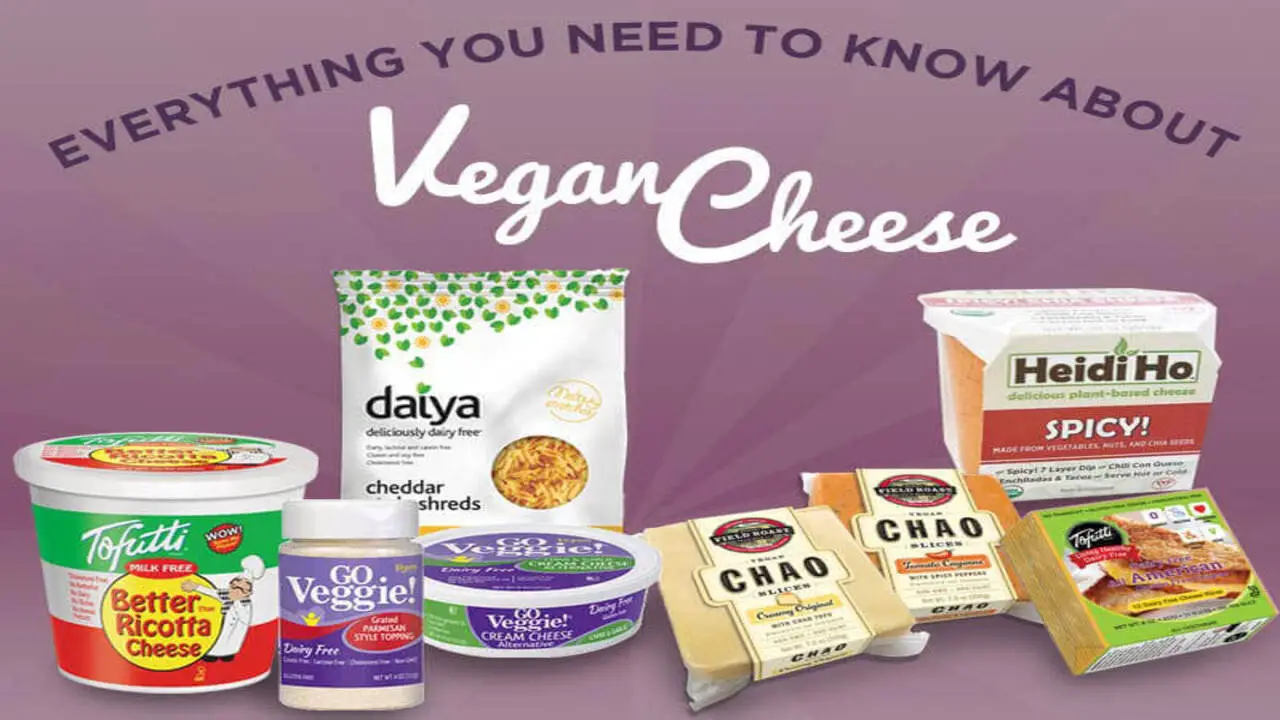
Different vegan cheeses have varying tastes, with manufacturers aiming to replicate the flavors of dairy cheeses. Customers often look for vegan cheeses that closely resemble their favorite dairy cheeses.
Brie-style vegan cheeses, made from soy milk with optional additives like garlic, taste similar to real Brie. There are also vegan Parmesan alternatives, which customers find to have a unique twist compared to traditional cheese Parmesan.
These vegan cheeses, such as Just Dills, Smart & Final, Garden Fresh Foods (available in both dairy and vegan versions), Miracle Whip Dream Whip, Yves Veggie Cuisine, and Tofutti varieties, cater to both animal lovers and non-vegetarians. Many more options are now available in the market.
Is It Right Or Wrong To Freeze Vegan Cheese?
You don’t need to freeze any vegan cheese, at least not for long. Suppose you think you can use some of the product on multiple occasions and save it until a later date. In that case, we advise against doing this because it will eventually lose effectiveness once it is on your shelf.
Some people freeze the cheese for convenience, which will make it dry. We recommend never freezing the stuff because manipulating proteins in your food can sometimes destroy its functional abilities and cause serious issues.
How To Freeze Vegan Cheese
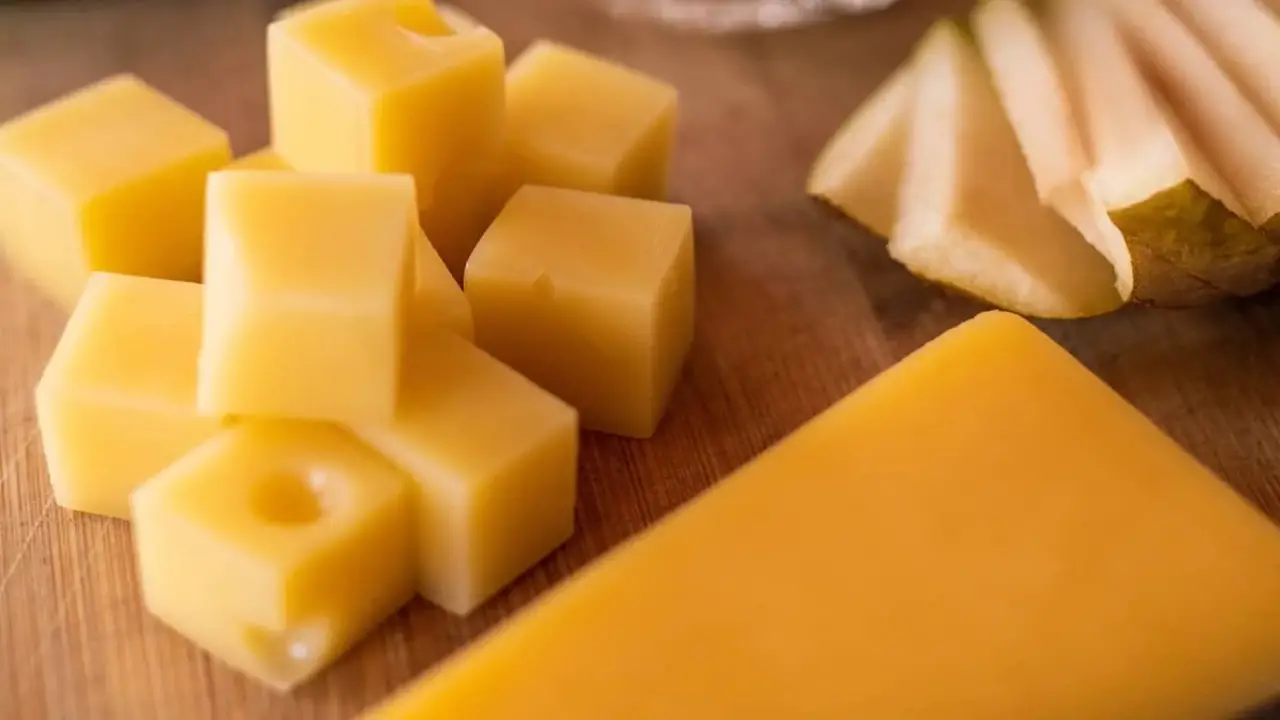
If you have a surplus of vegan cheese or want to extend its shelf life, freezing can be an option. However, it’s important to note that freezing may alter the texture and flavor of the cheese. Here are some instructions on how to freeze vegan cheese properly:
- Choose The Right Packaging: Use airtight containers or resealable freezer bags to prevent air and moisture from getting in.
- Portion The Cheese: Divide the vegan cheese into smaller portions before freezing to make it easier to thaw and use later.
- Label And Date: Make sure to label each container or bag with the type of cheese and the date it was frozen. This will help you keep track of its freshness.
- Remove Excess Air: If using reseal able bags, squeeze out as much air as possible before sealing to prevent freezer burn.
- Freeze Quickly: Place the vegan cheese in the freezer as soon as possible after packaging to maintain its quality.
How To Tell If Vegan Cheese Is Bad
Vegan cheese is a tasty alternative for plant-based diets but can spoil like regular cheese. Shelf life varies, typically lasting 4-6 weeks in the fridge. Look for mold, discoloration, or unpleasant smell/taste as signs of spoilage. To avoid health issues, discard expired cheese.
Store it in a sealed container in the coldest part of the fridge to extend its shelf life. Homemade cheese is a delicious and satisfying alternative to store-bought varieties. Individual cheeses offer a diverse and customizable experience for cheese lovers.
Can You Eat Vegan Cheese After 7 Days?

Vegan cheese is a great alternative to cheese made from dairy products. It’s a dairy-free cheese that is made from plant-based ingredients. However, like all plant-based foods, vegan cheese does not last forever.
Remember that vegan cheese is not dairy-free, so check the ingredients before consuming it. Store vegan shredded cheese in a sealed container and avoid contact with other foods. It will usually last up to 7 days in the refrigerator.
If you want it to last longer, place it in the freezer for 3-4 months. Happy cheese-eating. Numerous vegan cheese recipes available online cater to different tastes and dietary preferences.
Conclusion
The shelf life of Long Does Vegan Cheese Last? can vary depending on the type and brand. Always checking the expiration date and storage instructions on the packaging is important. How long does vegan cheese last? Generally, most vegan cheeses will last 1-2 weeks in the refrigerator after opening.
However, harder varieties, such as aged cashew cheese, can last several months when stored properly in the fridge. To extend your vegan cheese’s life, you can freeze it for up to 6 months. Just be sure to thaw it in the refrigerator before using it again.
Following these guidelines ensures that your vegan cheese stays fresh and delicious for as long as possible, in addition to checking the expiration date and storage instructions.
Keeping your vegan cheese well-sealed and stored in an airtight container or resealable bag is important. This will help prevent the cheese from drying out or absorbing any unwanted odors from other foods in the fridge.
Frequently Asked Questions
How Long Can Vegan Cheese Stay In The Fridge?
Vegan cheese can typically stay in the fridge for 1-2 weeks. However, it is important to check the specific packaging instructions as some brands may have different recommendations.
How Long Does Vegan Blue Cheese Last?
Vegan blue cheeses typically last 2-3 weeks when stored properly in the refrigerator. However, it is always best to check the expiration date or any specific storage instructions provided by the manufacturer to ensure its freshness and quality.
What Is Vegan Cheese Made With?
Vegan cheese is made with plant-based ingredients such as nuts (like cashews or almonds), soy, coconut oil, nutritional yeast, and various seasonings. These ingredients are blended or processed to create a creamy, cheese-like texture and flavor.
Is It Okay To Eat Expired Vegan Cheese?
No, it is not okay to eat expired vegan cheese. Like any other food, vegan cheese can spoil and become unsafe after expiration. Eating expired vegan cheese can lead to food poisoning and other health risks.
Why Is Butter Not Vegan?
Butter is not vegan because it is a dairy product derived from the milk of animals, usually cows. Vegans choose not to consume any animal products, including milk and its derivatives, as they believe it involves the exploitation of animals.
